Eyelash Extension Glue and Humidity: A Complete Guideline
When it comes to setting the stage for long-lasting eyelash extensions, humidity plays a more significant role than most lash artists think.
If you live in an area where there are different seasons, you might find that your lash glue’s performance varies with the time of year it is.
Using adhesive in dry seasons or climates can be very different from using it in humid ones. If you are tired of receiving messages from your clients complaining about bad retention whenever the season changes, then read this post.
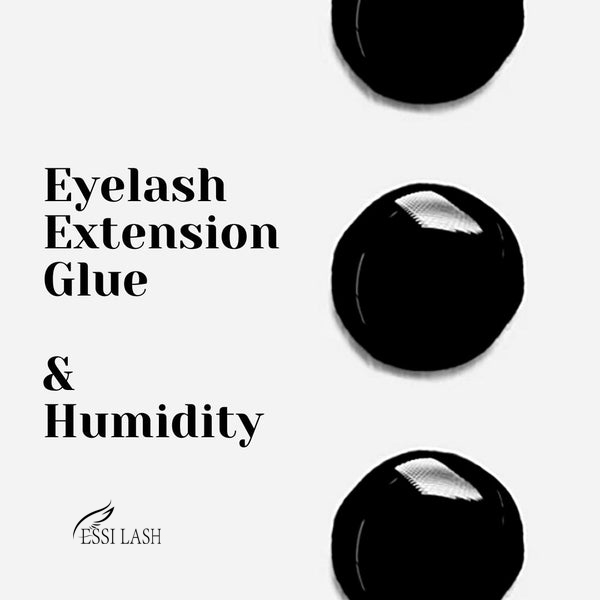
How does humidity affect eyelash extension glue?
All lash extension glues contain cyanoacrylate, which is the main ingredient of any lash glue. This ingredient ensures the lash glue dries quickly and holds the extensions in place for several weeks.
However, cyanoacrylate only starts to cure when there’s a presence of moisture. Simply put, humidity works as an ‘activator’ for lash extension glue’s adhesion.
How does humidity affect drying speed of the lash glue?
Lash glue manufacturers like ourselves regulate the drying speed of the lash extension glue by fine-tuning the amount of cyanoacrylate and a few other hardening agents in the mix, depending on how fast or slow they want the drying speed of their glue to be.
For example, one-second drying glue like GOLD+ 0.1S GLUE contains much more cyanoacrylate compared to a 2-3 second drying glue.
All our lash extension glues are designed to perform at their ‘intended drying speed’ (advertised drying speed) in the room humidity range of 45-60%.
The ideal humidity for eyelash extensions
For optimal performance of lash extension glue, your room humidity levels must be between 45-60%. We understand that not every area in the world falls into this range of humidity, but you must try to keep your room humidity level at 45-60% as much as possible.
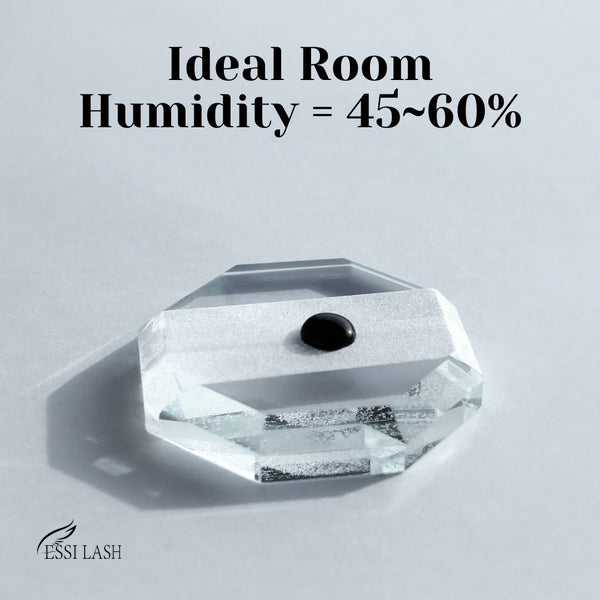
What happens to lash extension glue in high humidity?
Change in drying speed in high humidity
If the room humidity is higher than the ideal level (above 60%), the cyanoacrylate in your glue will be ‘overly activated’ by too much moisture in the air, which means that thelash adhesive will cure and dry much faster than usual.
If the room humidity is extremely high (over 70%), the over-activated cyanoacrylate will simply stop working and it will have poor adhesion.
More serious issues with lashing in high humidity
Dispensed glue will dry too fast
In the ideal room humidity of 45~60%, a drop of dispensed glue can stay fresh for about 20 to 30 minutes. However, in high humidity, your glue drop will start curing much faster and the glue drop will be already half-dried before you use the drop. It may still allow you to adhere the extension lash to the natural lash but it is likely to fall out prematurely.
Poor attachment
As we mentioned earlier, in high humidity, your adhesive will cure faster than what is said on the bottle. The adhesive may partially cure even before you’re able to attach, resulting in lash extensions not attaching well to the natural lash. It will result in bad retention.
How to lower the room humidity
If your salon is in an area with high humidity, the most important thing to do is to try to lower the humidity of your lash room as close as possible to the ideal humidity level of 45-60%.
These steps will help:
- Use a dehumidifier: Dehumidifiers work much like air conditioners. Warm, moist air is drawn into the dehumidifier by a fan. It can suck excess moisture from the air and restore the room to an ideal relative humidity.
- Use a hygrometer: A hygrometer is a must-have tool for any lash artist. This compact machine shows you the humidity and the temperature of your room. Always, always use a hygrometer near the lash bed to get an accurate humidity level of your work station.
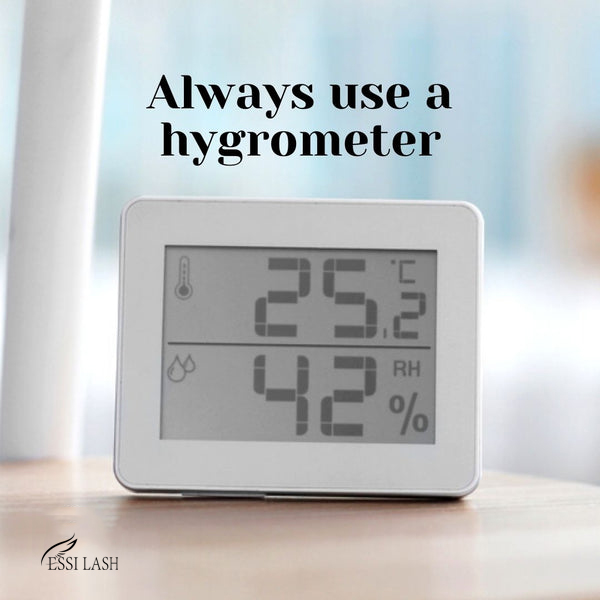
- Use moist absorbers: If you are not in the position to invest in a dehumidifier, get several moist absorbers (ones you used for your closet) and place them near your work area. This definitely helps to regulate high humidity at a low cost.
- Ventilate often: You and your client’s breath can and will add moisture to the room humidity. Ventilate the workroom in between the appointments.
Best eyelash extension glues for high humidity
If you can’t lower your humidity to the ideal level of 45-60%, have a quick assessment of which of your lash extension glues on hand is more suitable to use in high humidity.
Remember, humidity speeds up the drying process for eyelash extension glues. In high humidity, any glue will dry 1-2 times faster than its original drying speed. If your humidity is high, use a glue with slower drying speed.
For example, if you’re used to using a 1-2 second drying glue like ESSI LASH silver+ 1-2s glue , it will dry in less than 1 second in high humidity. If this drying speed is too fast for you, choose a slower glue with a 2-3 second drying time. This glue with a normally 2-3 second drying time will turn into a 1-2 second glue in high humidity.
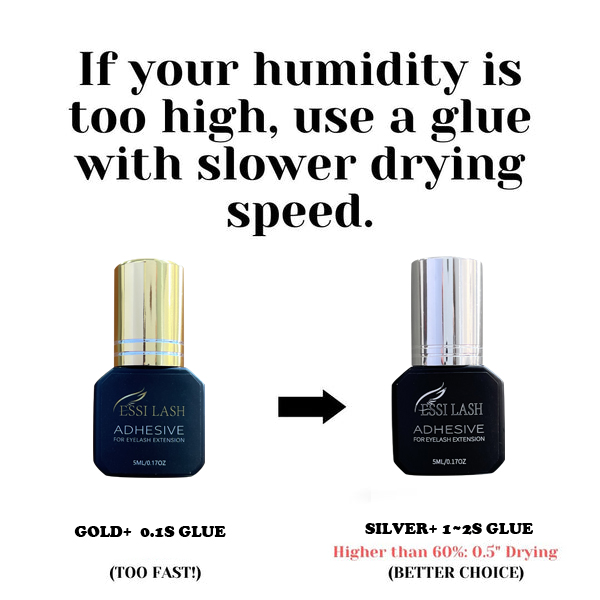
An additional tip for choosing a lash glue for high humidity climate
In highly humid climates, high temperatures and humidity lead to sweating and increased oil production in the skin. For this reason, choose an adhesive that is more resistant to water and oil like ESSI LASH water proof and oil proof glue
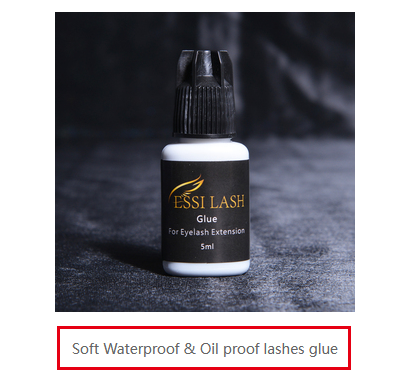
What happens to lash extension glue in low humidity?
Too little humidity will slow everything down. If the room humidity is lower than the ideal level (higher than 60% room humidity), the cyanoacrylate in your glue will not have enough water vapor to help it cure.
Cyanoacrylate only starts to dry when there’s enough moisture. A lack of moisture in the air (=dry air) won’t be able to “activate” lash glue into a solid, adhesive material that attaches lash extensions to the natural lashes. The lash extension glue will just stay ‘wet’.
This can cause a few frustrating issues like ‘lash stickies’, bad placement and higher exposure to cyanoacrylate, which could in turn cause an allergic reaction to lash glue.
- Lash stickies: Lash stickies is a term to describe the frustrating situation when your adjacent lash extensions stick to one another. Even if you did a perfect isolation at the beginning, if the lash glue doesn’t dry properly when you release the surrounding lashes, the wet glue will clump to them. This stickiness is caused by the adhesive taking too long to cure during attachment.
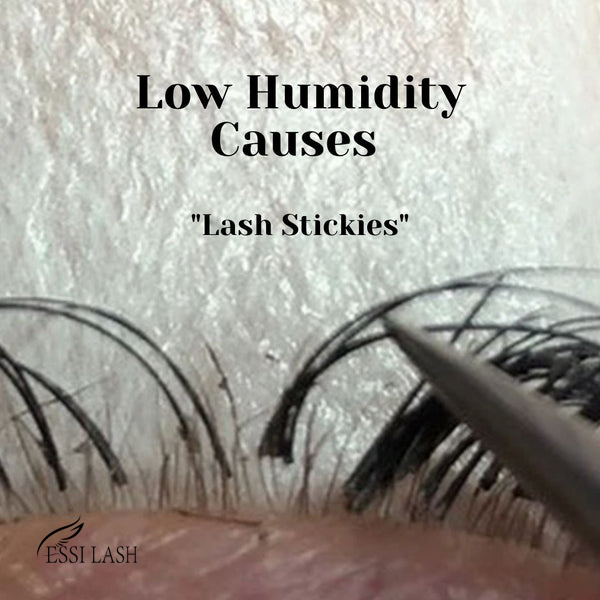
- Lashes don’t stick: Have you ever had one of those days when your extension lashes just refuse to stick? This is highly likely caused by low humidity. When lash adhesive doesn’t cure, the lash extension will just lean to the side or slip upon placement. You’re not going to feel that instant, magnetic attachment.
- Higher risk for developing a glue allergy: When the glue just doesn’t cure, your client ends up being exposed to cyanoacrylate longer. Longer exposure to cyanoacrylate fumes can increase your client’s chance of developing a glue allergy.
How to increase the room humidity
- Use a humidifier: A humidifier can add more water vapor to your air and bring the lash studio humidity up to 45-60%. It is highly recommended to invest in one if you live in a dry area.
- Use a nano mist spray: If the humidity is still low and/or the air is very dry outside of your salon, then you should consider purchasing a nano mist spray. Its fine mist helps to speed up the glue drying process.

- Use a lash extension primer: A lash primer removes excess oil from the natural lashes and this really creates a magnetic attachment kind of effect. It will help you to speed up your attachment in a low humidity environment.
- Use Extension Super Bonder: Super Bonder accelerates the drying time of your glue. It is similar to a lash primer but you apply this to extension lashes instead of natural lashes. It is also called ‘glue-aid’ because it fastens the drying time of your glue in unfavorable weather conditions like low humidity.
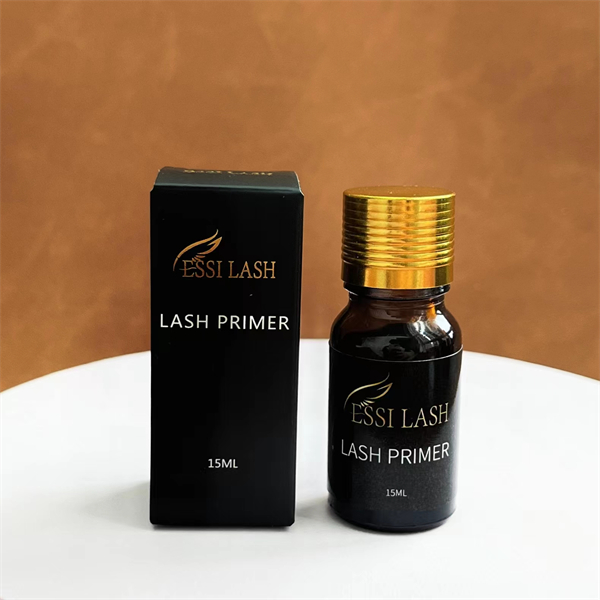
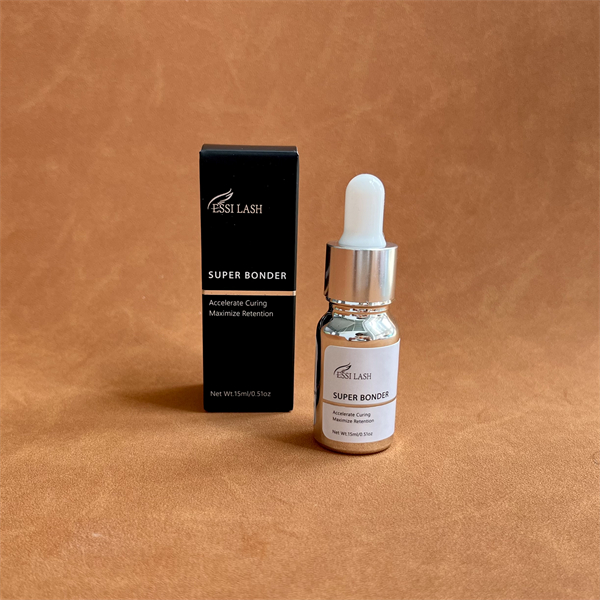
Best eyelash extension glues for low humidity
Although humidifiers and nano mist sprays can help you achieve the right environment, it may still be challenging to get the optimal humidity levels.
As we mentioned earlier, lower the humidity, slower the drying speed of your lash extension adhesive will be. If your humidity is too low, use a glue with faster drying speed.
For areas with low humidity, our glue recommendation is ESSI LASH GOLD+ 0.1S GLUE and SILVER+ 1~2S GLUE .
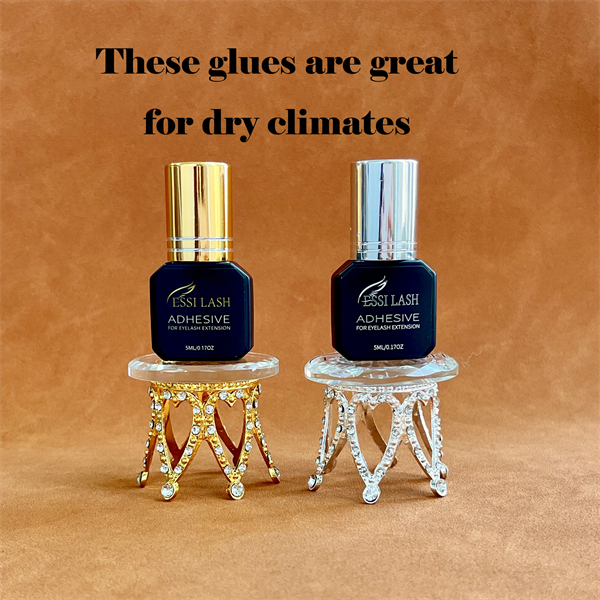
Does temperature matter, too?
Although humidity plays a major role in the adhesion of lash extension glue, regulating room temperature is also important.
Temperature affects the viscosity of the lash adhesive because, after all, lash adhesive is a liquid.
Just like any liquid, when the temperature drops, lash adhesive tends to solidify. The viscosity of the ‘frozen’ adhesive is lower (=harder) than usual, so it will take longer to dry.
In contrast, when the temperature soars, lash adhesive liquefies itself like it’s melting. The viscosity of the ‘melted’ adhesive is higher than usual, so it will take faster to dry than usual.
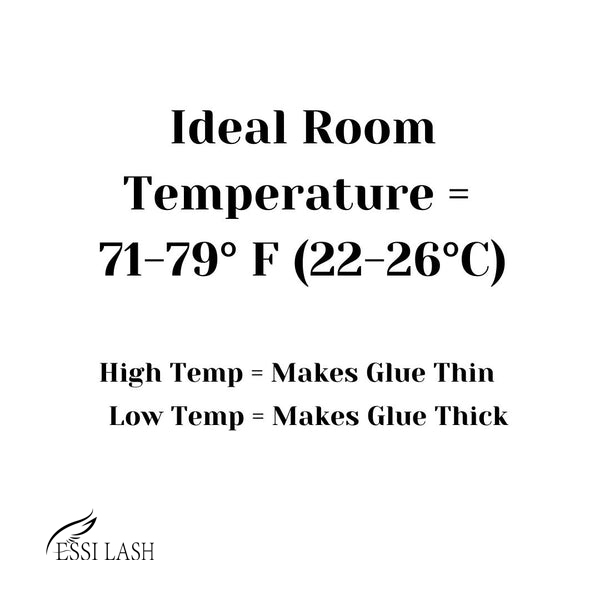
Changes in temperature can come as a surprise element to your application. To ensure consistent results and excellent retention, we recommend maintaining the room temperature at 22-26°C / 71-79° F.
_
Maintaining a controlled environment and keeping humidity and temperature in the ideal range helps reduce the chance of all kinds of lashroom disasters.
The best thing to do is to control your environment, thus getting the best out of your adhesive and resulting in strong, long-lasting eyelash extensions.



